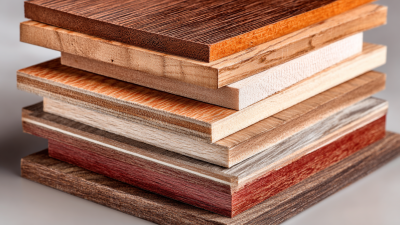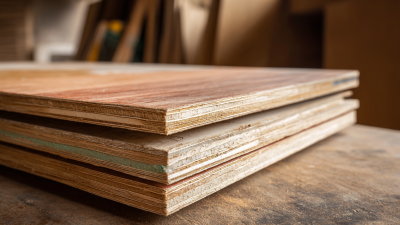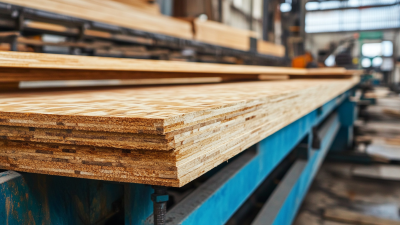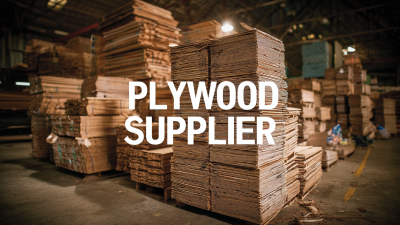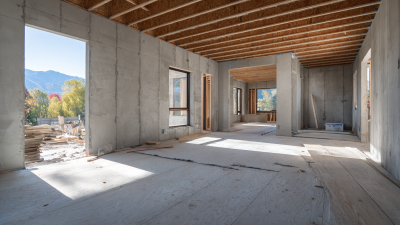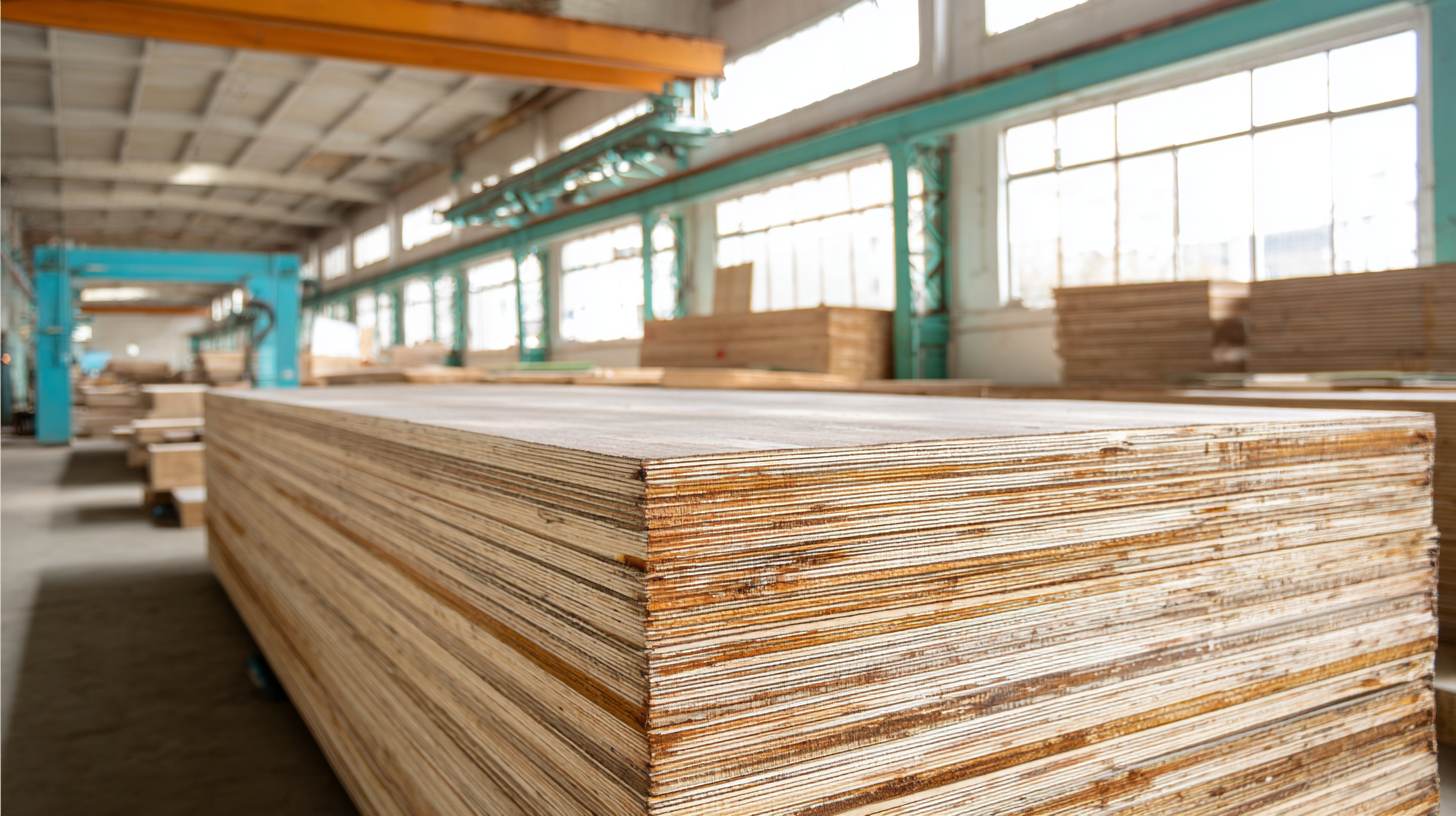 In the ever-evolving landscape of sustainable manufacturing, the plywood factory stands at the forefront of innovation, blending traditional craftsmanship with modern strategies. According to the “Global Plywood Market Report 2023,” demand for sustainable plywood has surged by over 20% in the past year alone, driven by increasing environmental awareness and regulatory pressures. As consumers and builders alike prioritize eco-friendly materials, plywood factories are adopting advanced production techniques that minimize waste and reduce carbon footprints. These methodologies not only enhance efficiency but also demonstrate an industry-wide commitment to sustainability. By leveraging digital technologies and best practices, today’s plywood factories are not only meeting current demands but also setting new standards for environmental responsibility in construction materials.
In the ever-evolving landscape of sustainable manufacturing, the plywood factory stands at the forefront of innovation, blending traditional craftsmanship with modern strategies. According to the “Global Plywood Market Report 2023,” demand for sustainable plywood has surged by over 20% in the past year alone, driven by increasing environmental awareness and regulatory pressures. As consumers and builders alike prioritize eco-friendly materials, plywood factories are adopting advanced production techniques that minimize waste and reduce carbon footprints. These methodologies not only enhance efficiency but also demonstrate an industry-wide commitment to sustainability. By leveraging digital technologies and best practices, today’s plywood factories are not only meeting current demands but also setting new standards for environmental responsibility in construction materials.
The plywood manufacturing industry is progressively shifting towards eco-friendly practices, focusing on innovative materials that minimize environmental impact. Sustainable plywood production techniques utilize alternative resources such as bamboo, reclaimed wood, and bio-based adhesives that reduce reliance on traditional wood and harmful chemicals. These materials not only decrease carbon footprints but also offer enhanced durability and aesthetic appeal, making them attractive options for environmentally-conscious consumers.
Tips for Eco-Friendly Plywood Production:
Green energy utilization is a cornerstone of sustainable plywood production techniques, significantly reducing the carbon footprint associated with traditional manufacturing processes. By harnessing renewable energy sources such as solar, wind, and biomass, plywood factories can minimize their reliance on fossil fuels. These eco-friendly energy solutions not only power machinery and production lines but also contribute to a cleaner environment, helping to combat climate change.
The integration of green energy into plywood manufacturing also promotes innovations in production efficiency. For instance, advanced technologies, such as energy storage systems and smart grids, enable factories to optimize energy consumption during peak and off-peak hours. Additionally, utilizing waste materials from plywood production as biomass fuel creates a closed-loop system that enhances sustainability while reducing operational costs. As the demand for environmentally friendly products rises, these innovative approaches signify a transformative shift in the plywood industry, paving the way for a greener future in construction and manufacturing.
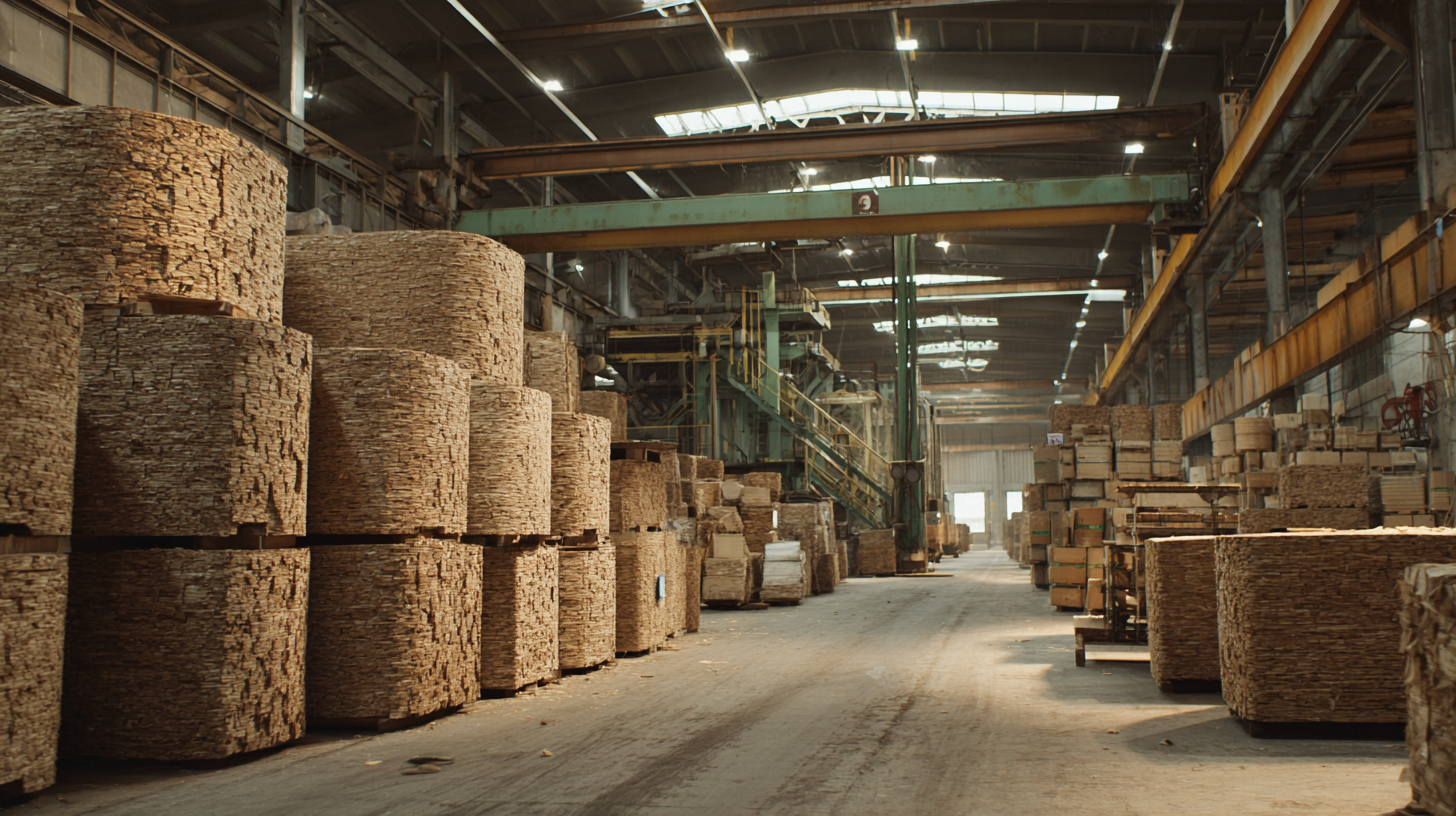
In the realm of plywood production, efficient waste management is at the forefront of sustainable practices. Plywood factories generate significant amounts of wood by-products during their manufacturing processes, which can contribute to environmental degradation if not properly managed. To tackle this challenge, many factories have implemented advanced recycling techniques to minimize waste and optimize resource utilization. For instance, offcuts and shavings from the cutting process are often collected and repurposed into composite materials or biomass fuel, effectively reducing landfill contributions and enhancing energy efficiency.
Furthermore, innovative technologies such as wood pulping and reconstituted wood products are gaining traction in the plywood industry. These techniques enable the conversion of waste into high-value materials, thus creating a circular economy within the factory. By transforming discarded wood into engineered wood products, factories not only lower waste production but also meet the increasing demand for sustainable materials. Overall, the integration of these recycling techniques underscores the plywood industry’s commitment to environmental responsibility and resource efficiency, paving the way for a greener future.
With the pressing need for sustainability in industrial practices, water conservation has emerged as a pivotal focus for plywood factories aiming to minimize their ecological footprint. Advanced production techniques can significantly reduce water consumption, which is critical given that industrial processes often contribute substantially to overall water usage. Reports indicate that the manufacturing sector accounts for approximately 20% of global freshwater withdrawals, underscoring the urgency for innovative water-saving strategies.
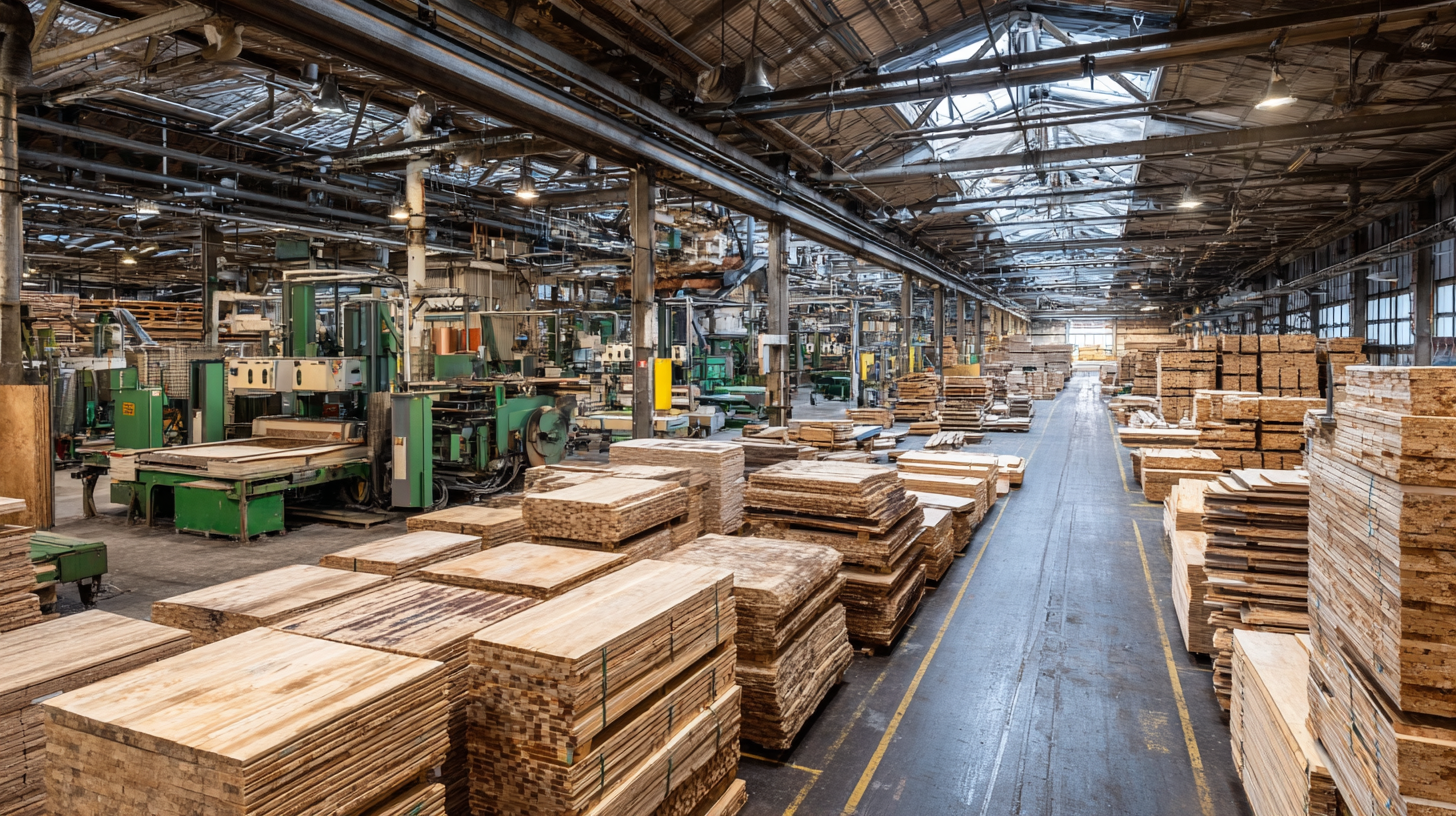
Integrating modern technologies, such as IoT and advanced materials, can enhance efficiency in water management systems within plywood production facilities. For instance, using a nexus approach allows for the optimal utilization of excess resources, ensuring that water used in production is recycled and reused effectively. Furthermore, insights drawn from various sustainability initiatives highlight that companies implementing next-generation water-saving techniques can expect to reduce their overall water demand by up to 30%. This not only contributes to a decrease in operational costs but also aligns with broader environmental goals aimed at achieving carbon neutrality across industrial sectors.
In the realm of sustainable plywood production, quality control is paramount to ensuring durability and longevity of the products. Key practices involve rigorous inspection at various stages of the manufacturing process. From the selection of raw materials to the final finishing, every phase is scrutinized for consistency and strength. This begins with sourcing responsibly harvested timber, followed by testing for moisture content and structural integrity. By adhering to these preliminary checks, manufacturers can mitigate potential weaknesses that may affect the end product.
Furthermore, implementing advanced manufacturing techniques contributes significantly to quality assurance. Techniques such as precision cutting and automated bonding processes enhance the structural performance of plywood sheets. Regular in-process evaluations, including adhesive testing and load-bearing assessments, help to guarantee that the plywood meets industry standards for durability. By focusing on these meticulous quality control practices, sustainable plywood factories not only ensure their products withstand the test of time but also promote an eco-friendly ethos that resonates with environmentally conscious consumers.
| Production Technique | Quality Control Measure | Durability Assessment Method | Sustainability Rating |
|---|---|---|---|
| Hydrothermal Treatment | Visual Inspection for Defects | Dynamic Mechanical Analysis | A+ |
| Cold Pressing | Adhesive Bond Strength Testing | Moisture Content Measurement | A |
| Cross-Laminated Timber | Thick-Section Shear Testing | Compression Strength Testing | A- |
| Bamboo Plywood Production | Fiber Orientation Checks | Impact Resistance Testing | B+ |
| Recycled Wood Integration | Environmental Compliance Auditing | Material Integrity Testing | A |

